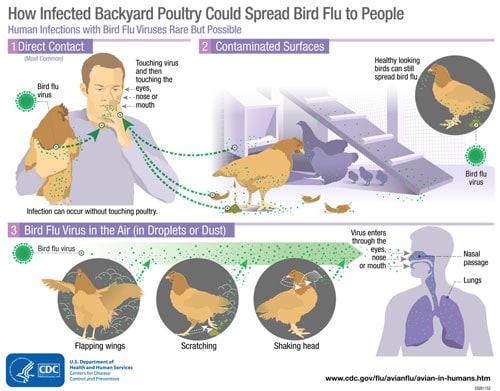|
View the Latest Influenza Information From This Week.
|
| Having trouble viewing this email? View it as a Web page. |
|
Influenza (Flu)

|
|
|
|
|
CDC Influenza News and Highlights
May 27, 2016
|
|
|
|
|
|
The most recent FluView report shows that flu activity continues to decrease in the United States. While flu activity has peaked nationally for this season, some parts of the country are still experiencing widespread flu. Ongoing activity is expected to continue for a number of weeks. Also, flu viruses circulate at low levels during the summer.
CDC recommends a yearly flu vaccine for everyone 6 months and older. Vaccination can reduce flu illnesses, doctors' visits, and missed work and school due to flu illness, as well as prevent flu-related hospitalizations.
CDC also recommends that patients suspected of having influenza who are at high risk of flu complications or who are very sick with flu-like illness should receive prompt treatment with influenza antiviral drugs without waiting for confirmatory testing.
|
|
|
|
|
| |

Although avian influenza A viruses usually do not infect humans, rare cases of human infection with these viruses have been reported. Infected birds shed avian influenza virus in their saliva, mucous and feces. Human infections with bird flu viruses can happen when enough virus gets into a person’s eyes, nose or mouth, or is inhaled. This can happen when virus is in the air (in droplets or possibly dust) and a person breathes it in, or when a person touches something that has virus on it then touches their mouth, eyes or nose.
|
| |
|
|
| |
|
A study by CDC authors published today in the journal Emerging Infectious Diseases found that CDC’s international capacity-building efforts over a 10-year period (2004-2013) have led to substantial improvements in foreign countries’ ability to conduct influenza surveillance and detect emerging virologic threats. The researchers analyzed surveillance data and program evaluation indicators from 35 countries. The key findings showed substantial increases in laboratory and sentinel surveillance capacities, which are essential for knowing which influenza strains circulate globally, detecting emergence of novel influenza, identifying viruses for vaccine selection, and determining the epidemiology of respiratory illness.
|
| |
|
|
| |

Get Influenza content on your Web site for free with content syndication. Learn more about content syndication.
|
| |
|
| Content source: National Center for Immunization and Respiratory Diseases |

